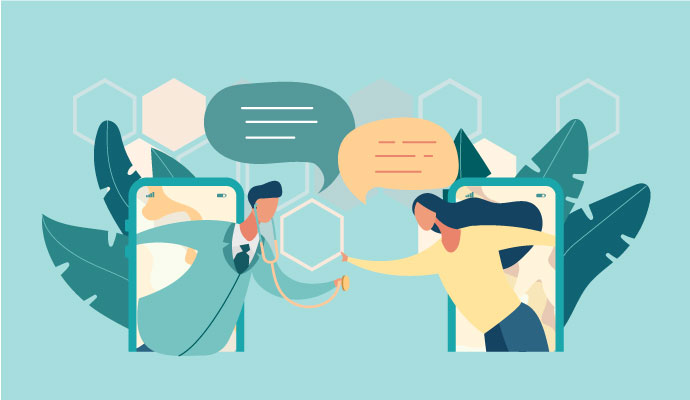Exploring Pros & Cons of Direct-to-Consumer Virtual Mental Health Apps
Virtual mental health apps have skyrocketed amid the intractable mental health epidemic in America, and while they offer numerous benefits like convenience, there are several downsides to their use.

Source: Getty Images
- Characterized by economic and financial instability, political uncertainty, social isolation, and widespread illness and death, the COVID-19 pandemic left Americans' mental health in tatters.
The problem is extensive, especially among young adults. A CVS Health survey shows that 60 percent of adults aged 18 to 32 are concerned about their mental health, and 67 percent say they know many people in their community struggling with mental health issues.
Listen to the full podcast to hear more details. And don’t forget to subscribe on iTunes, Spotify, or Google Podcasts.
"While we see many, many people that are in need of help, only about a little over 10 percent of Americans regularly see a mental health professional, like a psychiatrist, psychologist, or other type of therapist," said Taft Parsons III, MD, chief psychiatric officer at CVS Health, in a Healthcare Strategies podcast episode. "And so, we know that there are a lot of needs out there that are not being addressed."
To meet the demand for accessible and affordable mental healthcare, direct-to-consumer virtual applications have proliferated. One estimate shows that as many as 10,000 to 20,000 mental health-related apps may be available currently.
Overall, the ready availability of these apps has been a positive development, offering convenience and easy access to treatment, according to Parsons.
"There are the advantages of you can access it in the middle of the night and do some self-management, sometimes send through an asynchronous communication to an actual person," he said. "And you don't have to worry about if you're having insomnia because you're distressed at 2:00 AM that there's nobody for you to directly connect to in order to get your needs met at that moment."
But, as with any new care delivery modality, there are potential cons, such as data privacy and security issues. Increasingly, government agencies like the Federal Trade Commission are cracking down on instances where mental health apps have revealed patient data.
This, along with lingering questions on whether they can offer care quality on par with existing evidence-based treatments, shows that these apps still need to prove themselves in the clinical arena.
"There was a huge period of growth where all of these startups came in with their products, and a lot of people started using them," Parsons said. "And so, now that I'll say the metaphorical dust has settled a little bit, we're spending our time trying to figure out [whether] these [apps are] offering treatment that are at least as good as in-person treatment as usual."
As virtual mental health apps multiply, Parsons noted that traditional healthcare stakeholders, including payers, health systems, and retail healthcare organizations, can play a significant role in ensuring high-quality mental healthcare treatment through apps.
"It's one of our responsibilities towards our different customers to make sure that the quality of care and services that are being delivered to them meet the standards that they expect," he said. "We have a lot of data about care and outcomes, and we can hold the traditional outcomes up against these new offerings and see who kind of rises to the top."
